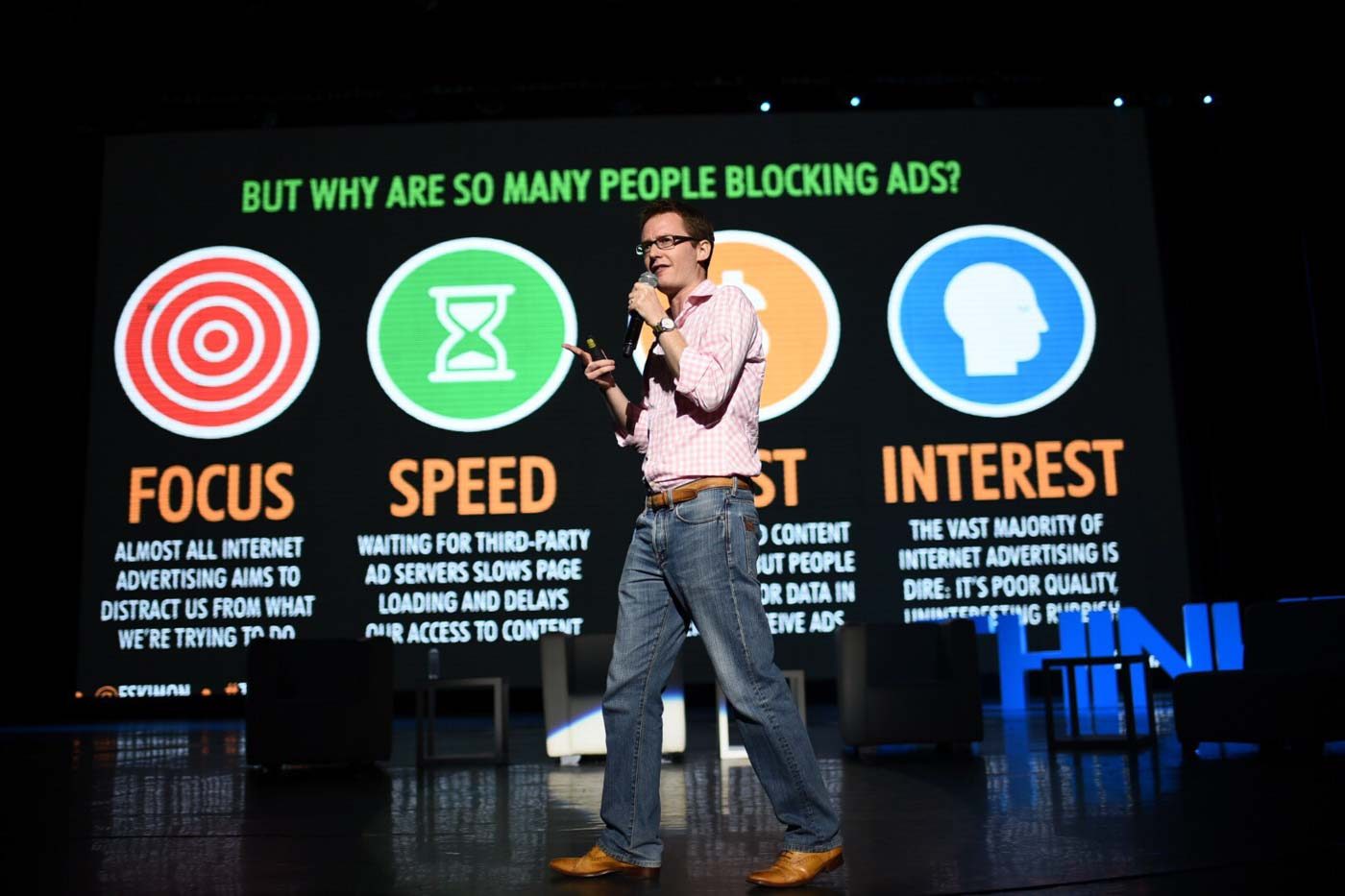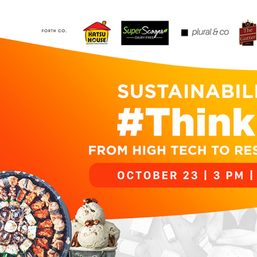SUMMARY
This is AI generated summarization, which may have errors. For context, always refer to the full article.

Missed this year’s #ThinkPH summit? Join the #ThinkPH viewing party on Saturday, September 10! Get your tickets here.
MANILA, Philippines – Simon Kemp, founder of Kepios and marketing strategist at We are Social, believes there are 5 things marketers should know about the future of their profession, especially in the age of social media and its future evolution.
Kemp says that almost half the world is on the Internet, with more than one in 3 people using social media. He added two-thirds of the world’s population now has a handset.
Because of this, Kemp wants marketers to reconsider the bigger picture.
“There’s a big cultural nuance here,” Kemp said in a talk at Rappler’s #ThinkPH event at Resorts World Manila on July 21. “The platforms that we choose depend very much on the languages that we speak and the places where we live.”
As a result, it is important that marketers understand that what might work for one cultural scenario may not work for others.
“The stories that you are witnessing, even in your own small ecosystems, amongst your groups of friends and in your industry, they are not representative of the bigger world out there,” Kemp explained.
Marketers should learn to question what statistics mean in this context.
The future of social media

Kemp made forecasts, and gave 5 tips on how to handle the changes that would come as a result of the evolution of social media.
“We will – and I’m very confident about this – by the end of the next year, we will see one of those mobile messengers overtake Facebook’s dominant public platform to become the world’s most active social platform,” he said.
While Facebook isn’t going anywhere anytime soon, Kemp said “the way we use social and the things that we’re offered by the companies that manage those platforms is evolving very quickly.”
The players on the social media landscape have to be aware of this and adjust accordingly.
The reason behind this, Kemp said, is that the natural flow of conversation is easier on chat apps. Data costs are also remedied somewhat by the use of chat apps, and the social aspects of information – avoiding a fear of missing out – is also lessened by interpersonal communication via chat.
As a result, the way marketers should maneuver themselves has to change. “It’s understanding that everything we do is going to be able to drive success,” Kemp said.
He emphasized that marketers “can no longer, in this chat app-driven world, rely on a boosted content approach. By that I mean create mediocre content and stick a hell-load of ads behind it.”
5 tips for navigating the new landscape

Kemp’s tips for navigating the evolving social media landscape emphasize adaptability and value-added worth.
His first tip is to treat social engagement as the outcome, rather than the measure of success. Driving positive conversation is key to a successful marketing campaign.
“If we do our jobs correctly across all aspects of our marketing,” he said, “people will talk favorably about our brand, by choice, organically, through word of mouth in digital social platforms. That is your measure of success in today’s social world.”
Kemp’s next two tips emphasized the importance of how and where a marketer imparts his message. If a marketer wants people to really pay attention, he should focus on adding value: either you solve a problem or feed into a passion or into something people care about.
Related to this, the way marketing should work in this day and age is that it should feed into having moments. Kemp asked marketers to consider the following: “When is my promise, when is my purpose, most relevant and most valuable to my audience, and what are the stages that lead up to that, in which I can deliver some of that value and engage people in the conversations that matter?”
Kemp’s last two tips dived deeply into the wellspring of future technology. The way we see the world now will be different from the way the world presents itself through technology in the future, as technologies will change how people do things.
Aside from a future where chat apps become the de facto medium of choice for communication, we may one day see a world that uses screens less and voice activated commands more. As such, marketers should aim to add value through utility.
More importantly, technology is slowly influencing our own thoughts and preferences. Technology now harnesses big data and algorithms to help consumers make decisions and, sometimes, act on a user’s behalf. Marketers should grow more aware of the implications of this.
Kemp said, “We are now in a world where the data that is being collected by these devices all around the world will very soon take over as the number one determinant of the things we think are the best answers to our problems and our passions, and also will go on to buy those things for us often without any of our own involvement.”
Future business success “is going to, in some way, and most likely in a large way, be determined by the influence of an algorithm.”
Marketers, Kemp said, should look to improving or refining their skill sets “to enable us to understand and influence these new audiences.” – Rappler.com
Add a comment
How does this make you feel?





There are no comments yet. Add your comment to start the conversation.